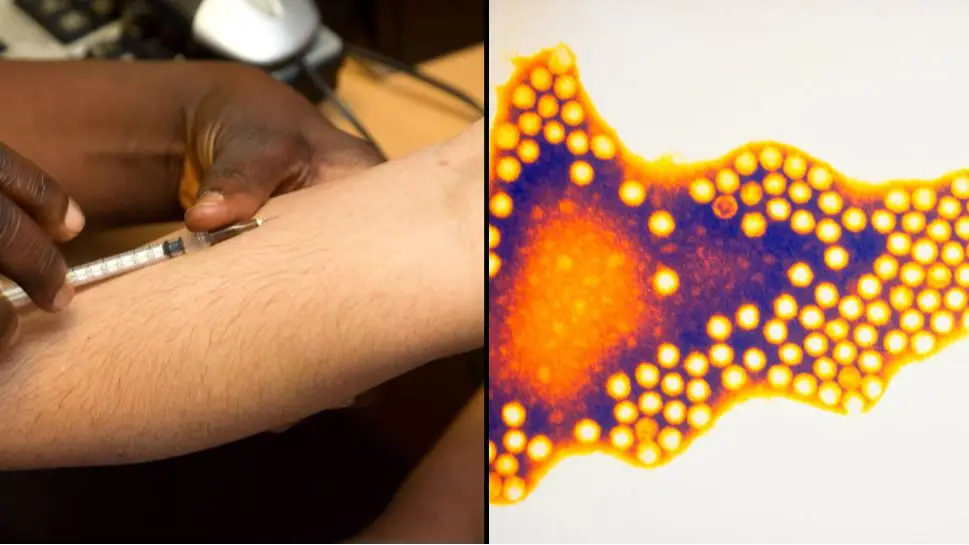
Health officials have declared a national incident as traces of polio virus have been found in London's sewage.
Officials are worried that the virus might have spread through communities after discovering samples in London's Beckton Sewage Treatment Works, Sky News reports.
An investigation will be launched to try and determine the source of the polio virus in London and work out how far it may have transmitted through the local area.
Polio was declared officially eradicated in the UK in 2003, with the last outbreak occurring in the 1970s and the final naturally occurring case detected in 1984.
Advert
It is a vicious virus that weakens the limbs and can cause paralysis in some cases, there is no known cure for polio and the only defence against it is vaccination.
The vast majority of people in the UK get vaccinated against polio at a very young age, though the amount of children protected is lower in London than the rest of the UK.

The UK Heath Security Agency (UKHSA) and the Medicines and Healthcare products Regulatory Agency (MHRA) found traces of polio in samples of sewage at a plant which serves more than four million people living in north and east London.
It is normal for isolated cases of the virus to be picked up but experts have found genetically linked viruses in samples at the treatment plant between February and May.
Dr Vanessa Saliba of the UKHSA reassured people that the danger to the public was low, but warned that some people in communities with low vaccination rates could be at risk.
She said: "Vaccine-derived poliovirus is rare and the risk to the public overall is extremely low. Vaccine-derived poliovirus has the potential to spread, particularly in communities where vaccine uptake is lower.
"On rare occasions it can cause paralysis in people who are not fully vaccinated so if you or your child are not up to date with your polio vaccinations it’s important you contact your GP to catch up or, if unsure, check your red book."

Children in the UK get their polio jabs as part of the 6-in-1 vaccine babies get when they're eight, 12 and 16 weeks old which also protects against tetanus, diphtheria, hepatitis B, whooping cough and Hib.
By the age of two years old, 95% of babies in the UK have had the proper amount of vaccinations, though this figure drops to 90% in the London area.
However, the number of children who received their polio booster jab as part of their pre-school 4-in-1 vaccinations drops to 71% in London.
Most people who get polio suffer mild flu-like symptoms but between one in 100 and one in 1,000 cases the virus attacks the nerves in the spine and at the base of the brain.
This can cause paralysis, usually of the legs, but it can also be life threatening if the breathing muscles are affected.